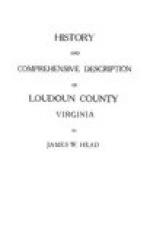John Wildey,
Joseph Bayley,
Isaac Sanders,
Thos. Williams,
John Williams,
William Finnekin,
Richard Hanson,
John Dunker,
Thomas Williams,
James Nolan,
Samuel Peugh,
William Nornail,
Thomas Luttrell,
James Brair,
Poins Awsley,
John Kendrick,
Edward O’Neal,
Francis Triplett,
Joseph Combs,
John Peyton Harrison,
Robert Combs,
Stephen Combs,
Samuel Henderson,
Benjamin Overfield,
Adam Sangster,
Bazzell Roads,
James Graydey,
Thomas Awsley,
John Reardon,
Henry Awsley,
Edward Miller,
Richard Hirst,
James Davis,
Jasper Grant.”
Joseph Bayley,
Isaac Sanders,
Thos. Williams,
John Williams,
William Finnekin,
Richard Hanson,
John Dunker,
Thomas Williams,
James Nolan,
Samuel Peugh,
William Nornail,
Thomas Luttrell,
James Brair,
Poins Awsley,
John Kendrick,
Edward O’Neal,
Francis Triplett,
Joseph Combs,
John Peyton Harrison,
Robert Combs,
Stephen Combs,
Samuel Henderson,
Benjamin Overfield,
Adam Sangster,
Bazzell Roads,
James Graydey,
Thomas Awsley,
John Reardon,
Henry Awsley,
Edward Miller,
Richard Hirst,
James Davis,
Jasper Grant.”
Revolutionary Committees.
The County Committee of Loudoun for 1774-’75 was composed of the following members:
Francis Peyton,
Josias Clapham,
Thomas Lewis,
Anthony Russell,
John Thomas,
George Johnston,
Thomas Shore,
Jacob Reed,
Leven Powell,
William Smith,
Robert Jamison,
Hardage Lane,
John Lewis,
James Lane,
George Johnston,
Clerk.
The appended findings of this as well as a later committee exemplify the work of these Revolutionary bodies.
“At a meeting
of the Committee of Loudoun County, held at
Leesburg on Friday,
May 26, 1775....
“The Committee, taking into consideration the conduct of the Governour relative to the powder which was, by his express orders, taken secretly out of the publick Magazine belonging to this Colony, in the night of the twentieth ult., and carried on board the Magdaline schooner.
“Resolved, nemine contra dicente, That his Lordship, by this and other parts of his conduct which have lately transpired, has not only forfeited the confidence of the good people of this Colony, but that he may be justly esteemed an enemy to America; and that as well his excuse published in his Proclamation of the fourth instant, as his verbal answer to the address presented him on that occasion by the city of Williamsburgh, are unsatisfactory and evasive, and reflect, in our opinion, great dishonour on the General Assembly and inhabitants of this Colony, as from the latter a suspicion may be easily deduced, that the Representatives of the people are not competent judges of the place wherein arms and ammunition, intended for the defense of the Colony, may be safely lodged, and that the inhabitants (unlike other subjects) can not, in prudence, be trusted with the means necessary for their protection from insurrection, or even evasion; so in the former a very heavy charge is exhibited against the best men among us, of seducing their fellow-subjects from their duty and allegiance; a charge, we are confident, not founded in reality, and which, we believe, is construed out of the discharge




